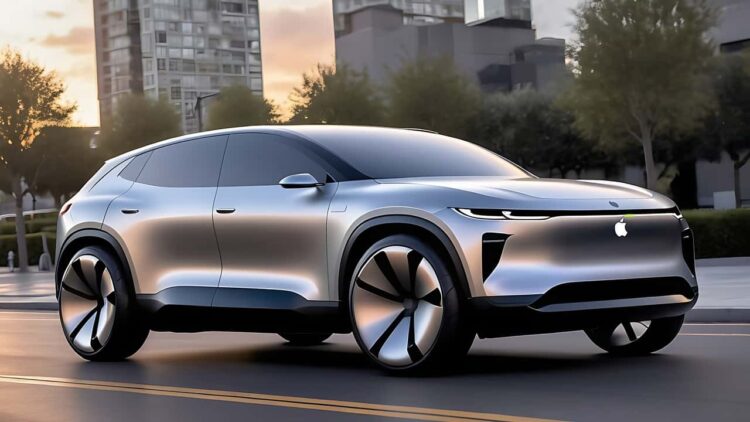In an unexpected development, Apple Inc. has made the surprising decision to abandon its ambitious electric car project, marking the end of a decade-long and multi-billion-dollar effort aimed at challenging Tesla’s dominance. This move brings the curtain down on Project Titan, one of the most ambitious ventures in Apple’s corporate history.
You may also read: Tesla Cybertruck Owners Complain About Rust on Pickup Truck
Shifting Landscape for Employees
The decision was internally communicated by Chief Operating Officer Jeff Williams and Vice President Kevin Lynch on February 27, catching nearly 2,000 project employees off guard. This includes the members of the car team, known as the Special Projects Group (SPG), who will now transition to the artificial intelligence division under executive John Giannandrea. Their focus will shift to generative AI projects, showcasing a strategic shift within the company
While several hundred hardware engineers and vehicle designers within the Apple car team may have the opportunity to explore positions in other divisions, the exact number of potential layoffs remains uncertain. Investors responded positively to the news, leading to a 1.2 percent surge in Apple’s stock, reaching $183.37 at 2:33 pm in New York, following Bloomberg’s report on the matter.
You may also read: Ashneer Grover Trolls BYD Atto 3 with Tesla Badge
Musk’s Reaction and Project Titan Struggles
On the competition front, Tesla Inc. CEO Elon Musk expressed his celebration on the social media platform X (formerly Twitter) with a saluting emoji and a cigarette. The conclusion of Project Titan signifies the end of a struggle that began in 2014 with the goal of developing a fully autonomous electric vehicle (EV). However, the initiative faced consistent challenges in leadership and strategy from its inception. A few years ago, Lynch and Williams assumed control after the departure of Doug Field, who is now a senior executive at Ford Motor Company.
This decision aligns with the broader challenges faced by the EV market, which has experienced slowed sales growth due to high prices and insufficient charging infrastructure. Major automakers, such as General Motors and Ford, are shifting their focus towards producing more hybrid vehicles. Even Tesla, a key player in the U.S. EV revolution, has cautioned about a considerable slowdown in its expansion rate this year. A forecast by UBS on February 26 predicted a deceleration in domestic EV sales growth, estimating an 11 percent growth rate next year compared to the projected 47 percent growth rate for this year.
You may also read: Tesla Cybertruck Owners Complain About Rust on Pickup Truck
Strategic Shift to AI and Continued Investments
In a recent project status update and strategic shift, analysts from Bloomberg Intelligence, Anurag Rana and Andrew Girard, suggest that Apple’s move towards generative AI is a strategic decision, emphasizing the long-term profitability potential of AI revenue streams over the uncertainties in the EV market.
While the electric car project has been abandoned, Apple remains committed to substantial investments in various areas, allocating $113 billion to total research and development expenditure over the last five years. Notably, the company recently introduced the Vision Pro headset, marking its entry into a new product category after nearly a decade. The decision to shift focus indicates Apple’s adaptability and commitment to staying at the forefront of technological innovation.
You may also read: Indian Carmakers Worried About Tesla, Against Lower Import Taxes


